There are many social work assessment tools that help social workers with examining their clients and their situation.
In this post, we will be looking at several visual tools that help understand the clients’ relationships and situation in-depth.
- What is Social Work Assessment?
- Social Work Process
- Social Work Assessment Tools
- Anymore Social Work Assessment Tools?
Each visual tool is explained with a template that you can edit online and download as an image, PDF or SVG which you can embed in presentations and other documents, or take printouts.
What is Social Work Assessment?
A social work assessment is a systematic and comprehensive process used by social workers to gather and evaluate information about an individual, family, or community in order to understand their unique needs, strengths, challenges, and circumstances. Based on this assessment a plan will be devised to assist the client to overcome the challenges and issues identified.
Social work assessments are person-centered and holistic, taking into account the individual’s physical, psychological, social, and environmental factors. They are conducted with empathy, cultural sensitivity, and a focus on empowering the client to participate in the decision-making process. The goal is to improve the well-being and quality of life for the individuals, families, or communities being served.
Social Work Process
Assessment is the first step in the social work process.
Assessment
In this first step of the social work process, information on the client’s strengths, needs, challenges, goals and resources are accumulated.
By examining these aspects, you will be able to identify what needs to change and why, and generate an idea about what should happen next.
Planning
In this stage, it will be decided who will need to take action, when and how they will do it. Accordingly create an action plan that is flexible enough to survive the changing circumstances.
Intervention
In this stage you will be deploying your action plan.
In an intervention, as a social worker you might be required to offer the necessary resources to help your client live independently, or provide advice and guidance to develop their skills.
Review/ Evaluation
Review and evaluate the progress you have made with the implemented plan. Have you been able to achieve the results you expected? Has it changed the life of your client positively?
Social Work Assessment Tools
There are various methods and tools to help facilitate the social work assessment process. In this post, we will look at several visual social work assessment tools that can help social work practitioners gather as much information on their clients as needed.
1. Culturagrams
Culturagram is a family assessment tool developed by Elaine Congress to understand families that come from different cultural backgrounds. It helps focus on 10 different cultural aspects and works best with immigrant families/ refugees.
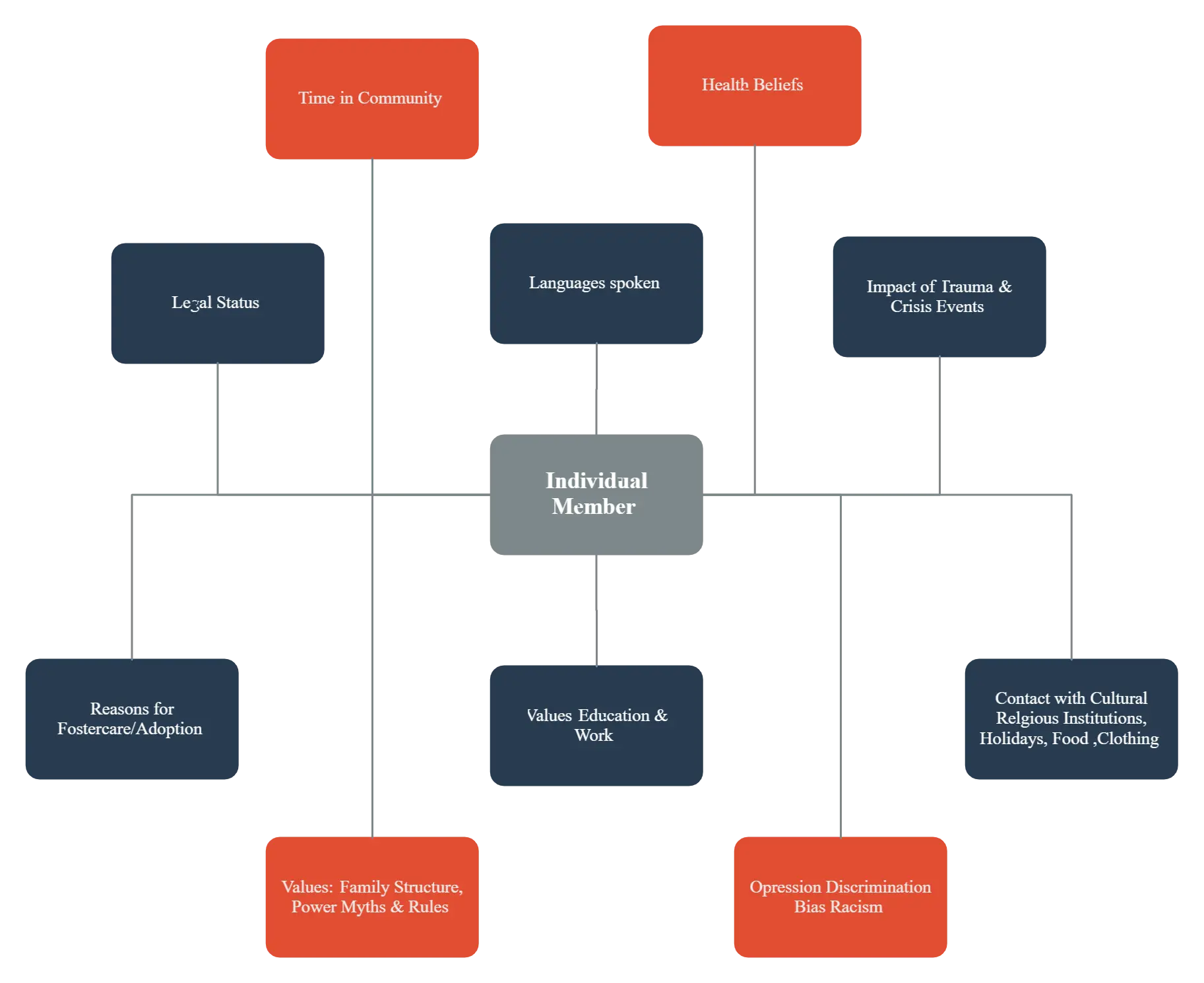
The culturagram consists of a diagram that examines the following factors;
- Reason for Relocation Legal Status
- Time in Community
- Language Spoken at Home and in the Community
- Health Beliefs
- Impact of Trauma and Crisis Events
- Contact with Cultural and Religious Institutions Holidays, Food, and Clothing
- Oppression, Discrimination, Bias, and Racism
- Values about Education and Work
- Values about Family
2. Ecomaps
Commonly used by nurses and social workers, the ecomap was developed by Dr. Ann Hartman who also developed the genogram.
It is a tool that is used to visualize the personal and social relationships of a family with its external world. It helps convey the quality of these connections as well. The ecomap is commonly used with refugee and migrant families.
How to draw an ecomap
Step 1: Begin your ecomap with a circle in the middle. Portray the family members within the circle using a genogram – squares for male family members and circles for female family members. Mention their name and age in the middle of the shape assigned to them.
Step 2: Represent the quality of the relationship between the family members by using one of the connection lines below.

Step 3: Identify and add any extended family members or close friends. Visualize the quality of the relationship to them using the lines above.
Step 4: Add the social and environmental systems such as schools, religious institutions, work etc. that have an impact on the family. Portray the quality of the relationships here as well.
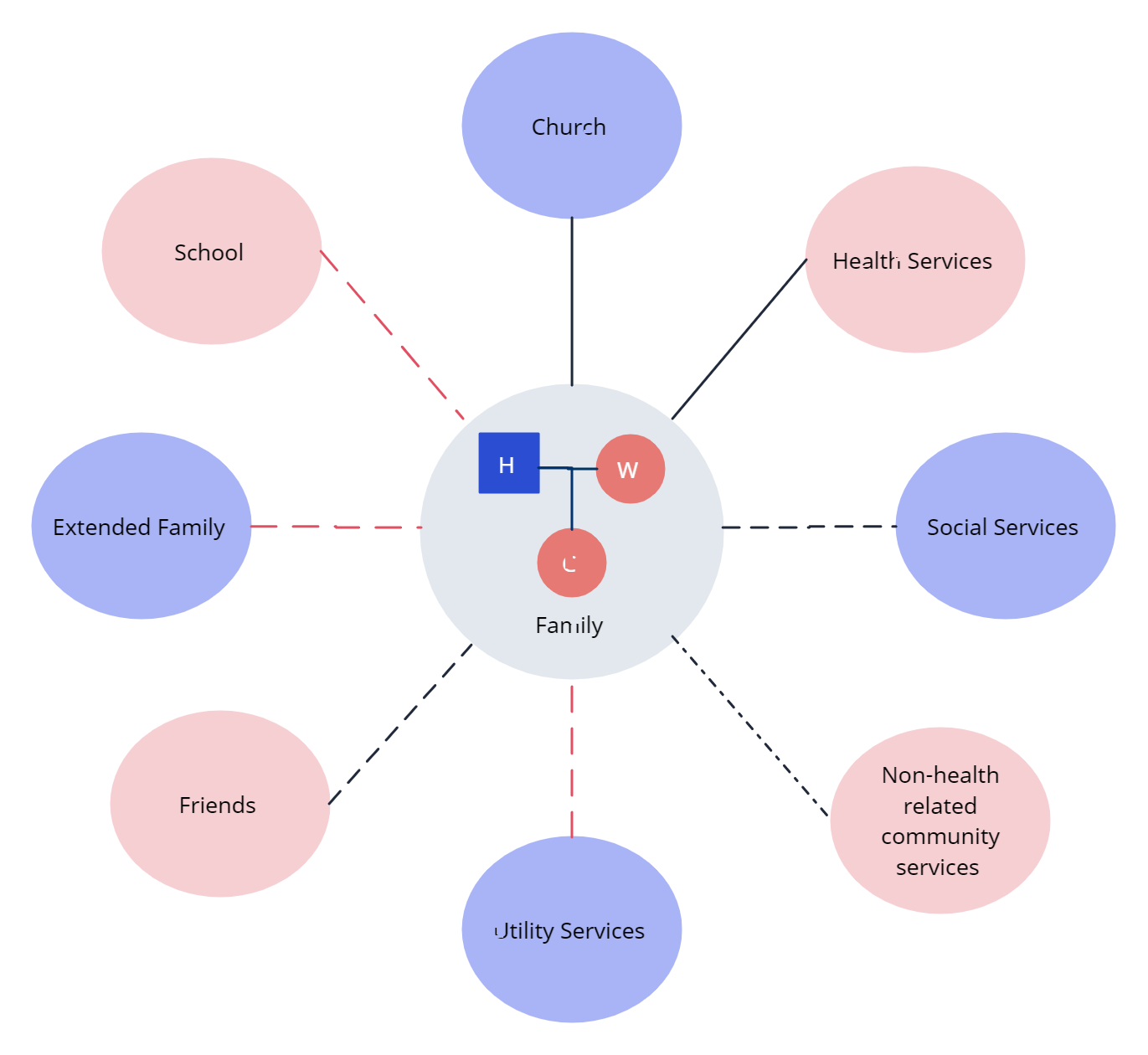
3. Personal SWOT Analysis
A personal SWOT analysis is a useful self-assessment tool that you can use with your clients. While it should be done individually, it helps your client identify their strengths, weaknesses, threats and opportunities.
The key to a successful SWOT analysis is asking the right questions. Read our article on Personal SWOT Analysis to Assess and Improve Yourself to learn how to use this tool along with useful questions that you can ask from your clients.
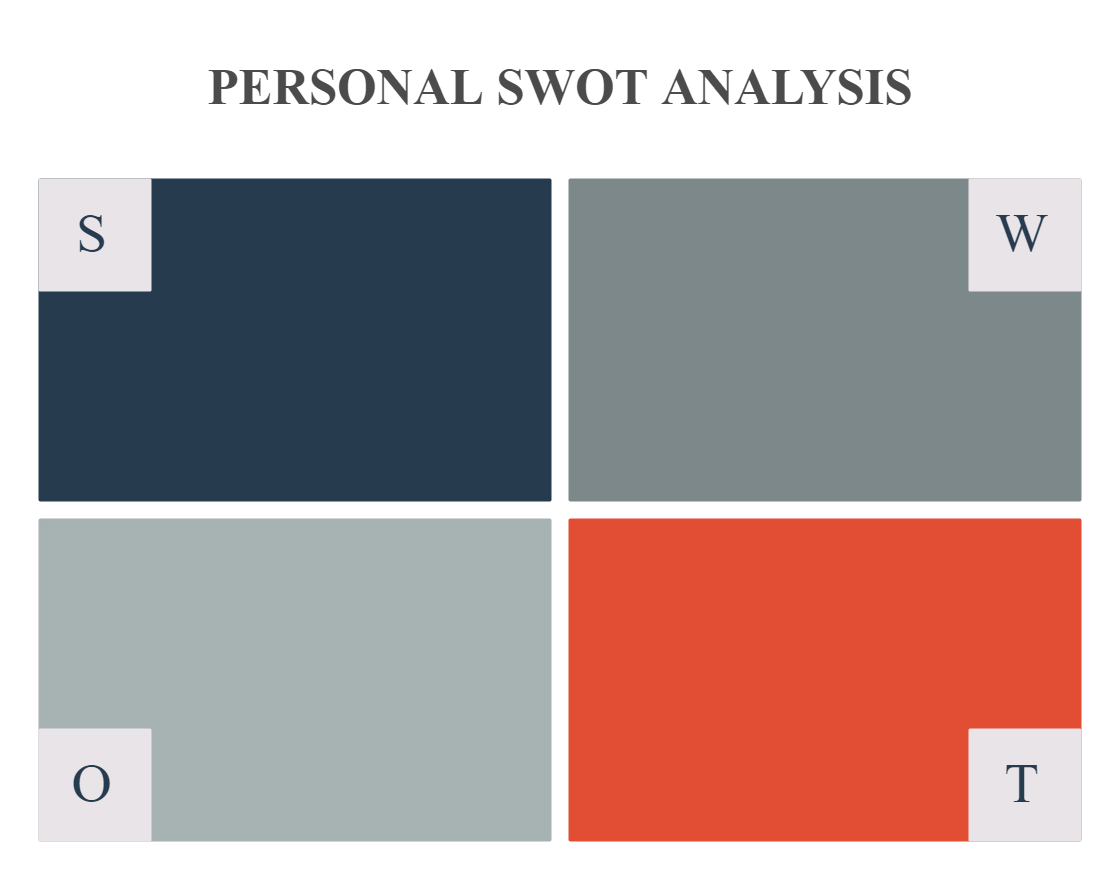
4. Self-Assessment Template
Another self-assessment tool that lets you explore a variety of aspects of an individual’s life is this worksheet developed by Ignacio Pacheco on Social Work Tech.
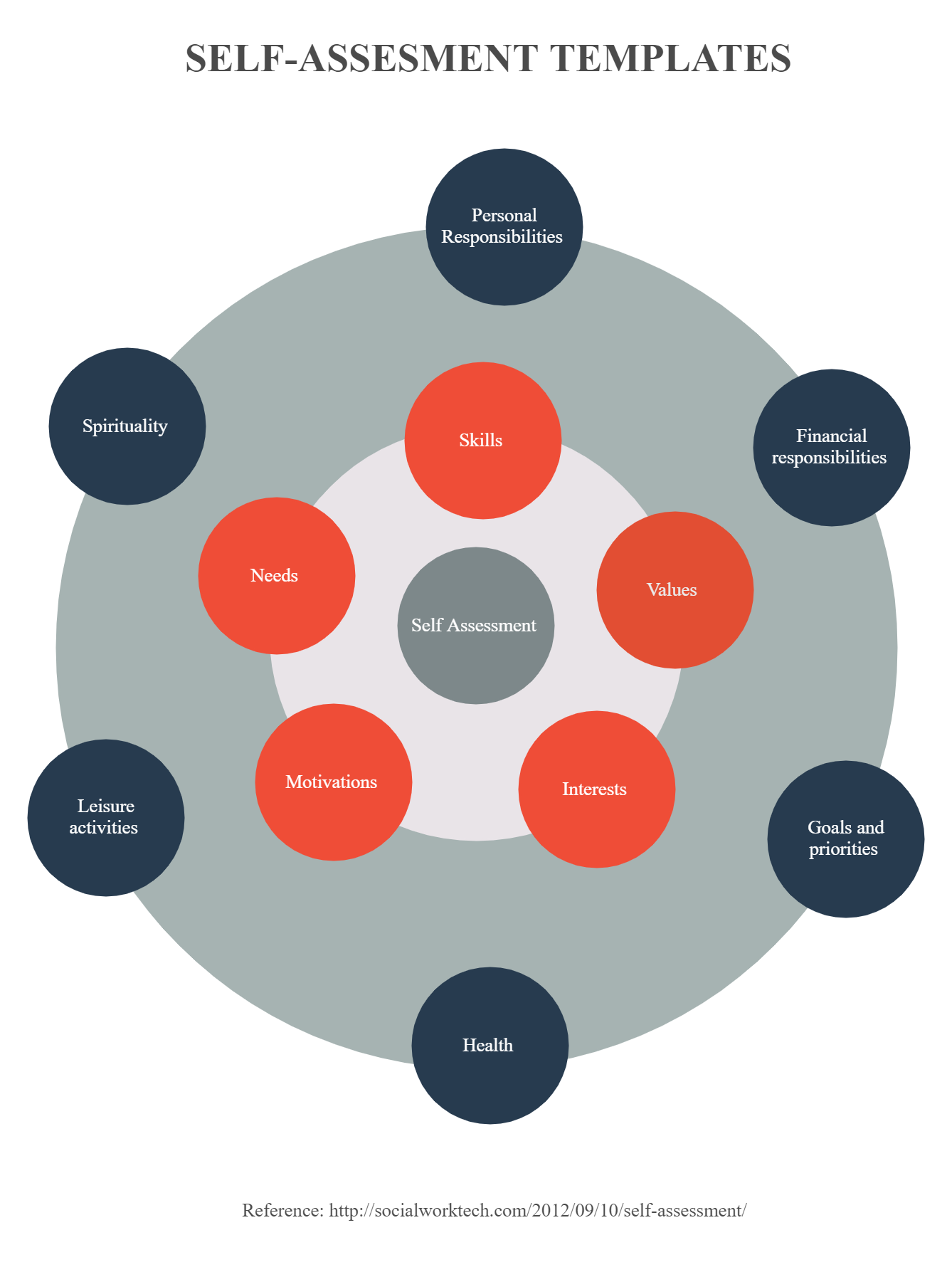
5. Genograms
Genogram is a tool used to visualize a person’s family relationships and history. It moves a step further from the traditional family tree diagram and highlights generational patterns and psychological factors that affect the relationships.
Genogram is a great tool to allow clients to explain their current circumstances that they might struggle with to speak openly about. For example, a client who is being abused, but hesitant to speak about it, can use a genogram to indicate his/her situation and open a dialogue with the social worker.
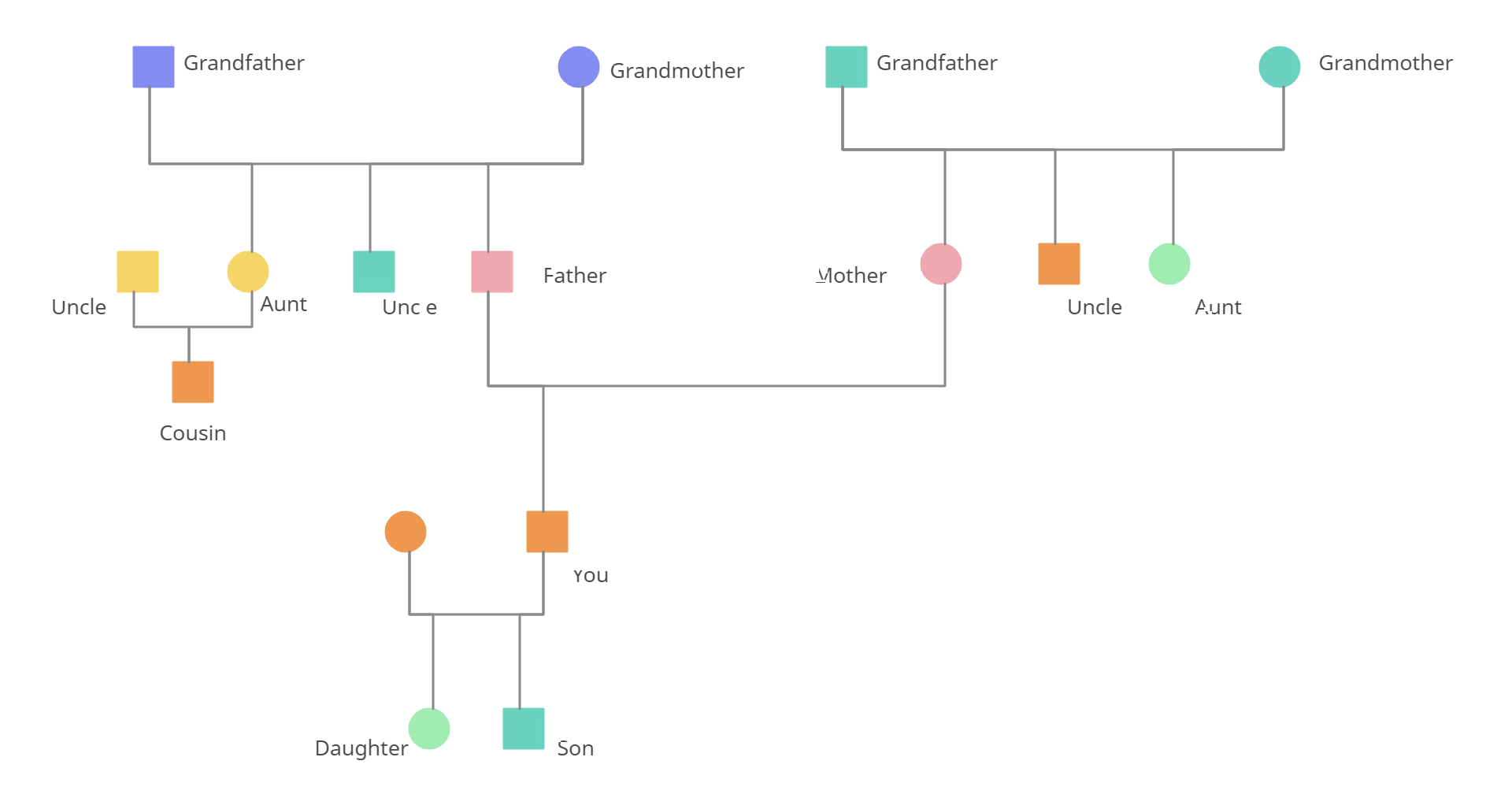
6. Sociogram
Sociogram is a tool that is used to visualize the types of relationships within a group. This will help you understand group behavior.
It can alert you about people who are being isolated within the group or popular among many.
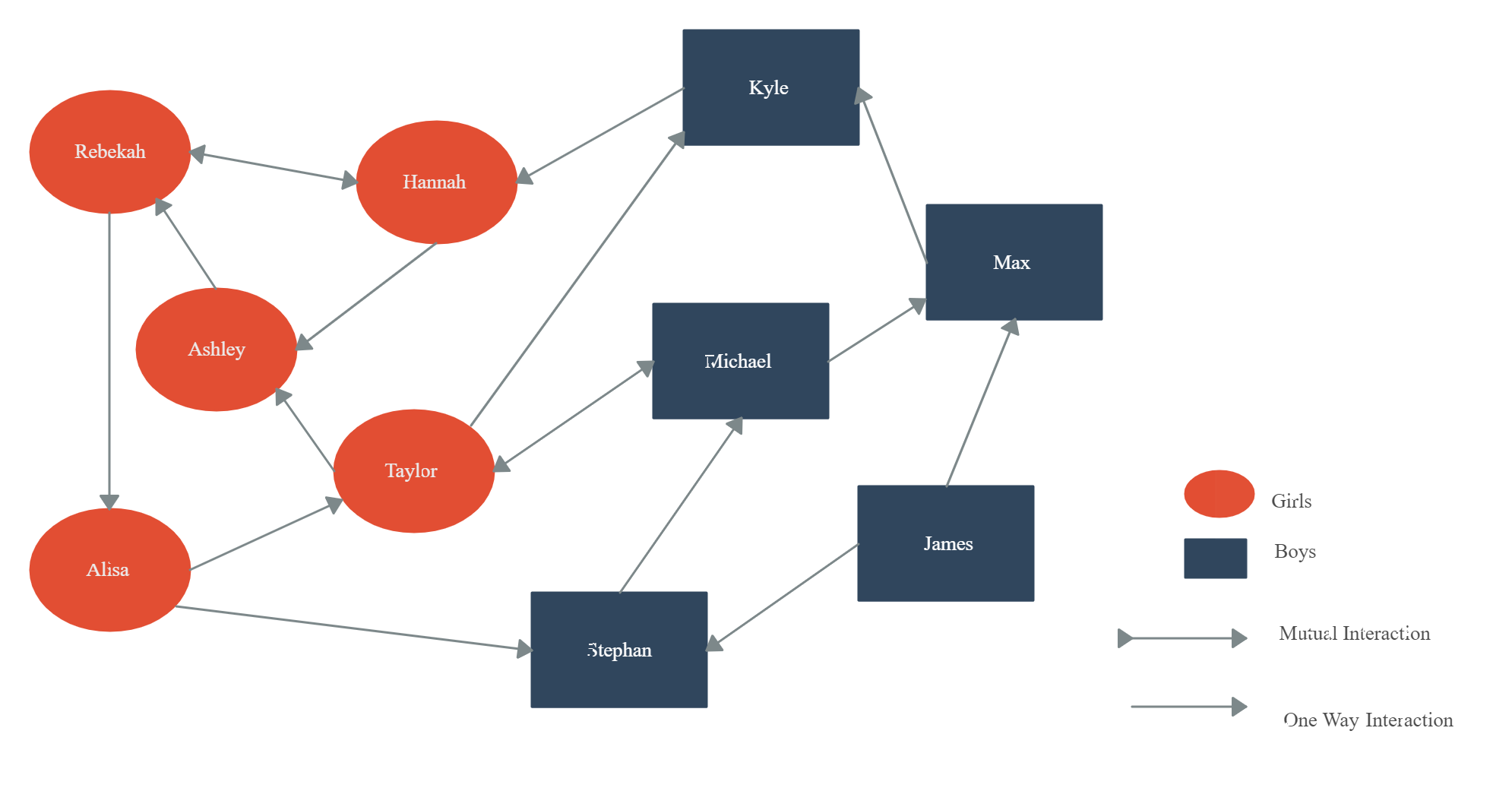
7. Mind Maps
As with the culturagram, you can use mind maps to capture, organize and categorize information you come across during interviews with clients in the assessment stage.
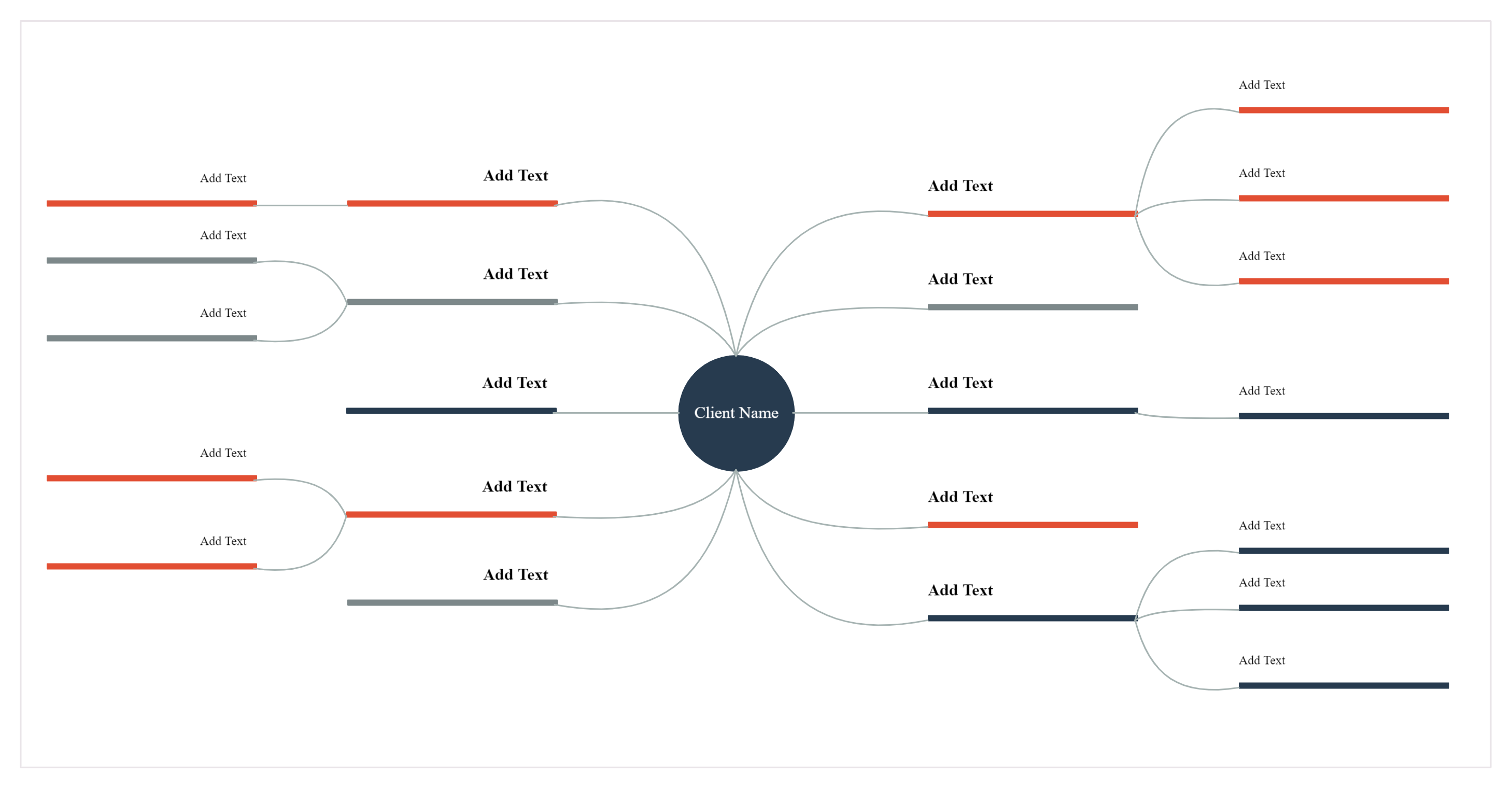
Anymore Social Work Assessment Tools?
Here we have listed popular social work assessment tools that you can use easily to understand clients and their situation and define their relationships with their families and the outside world.
We would love to know if you are familiar with any other social work assessment tool. Let us know in the comment section below.





